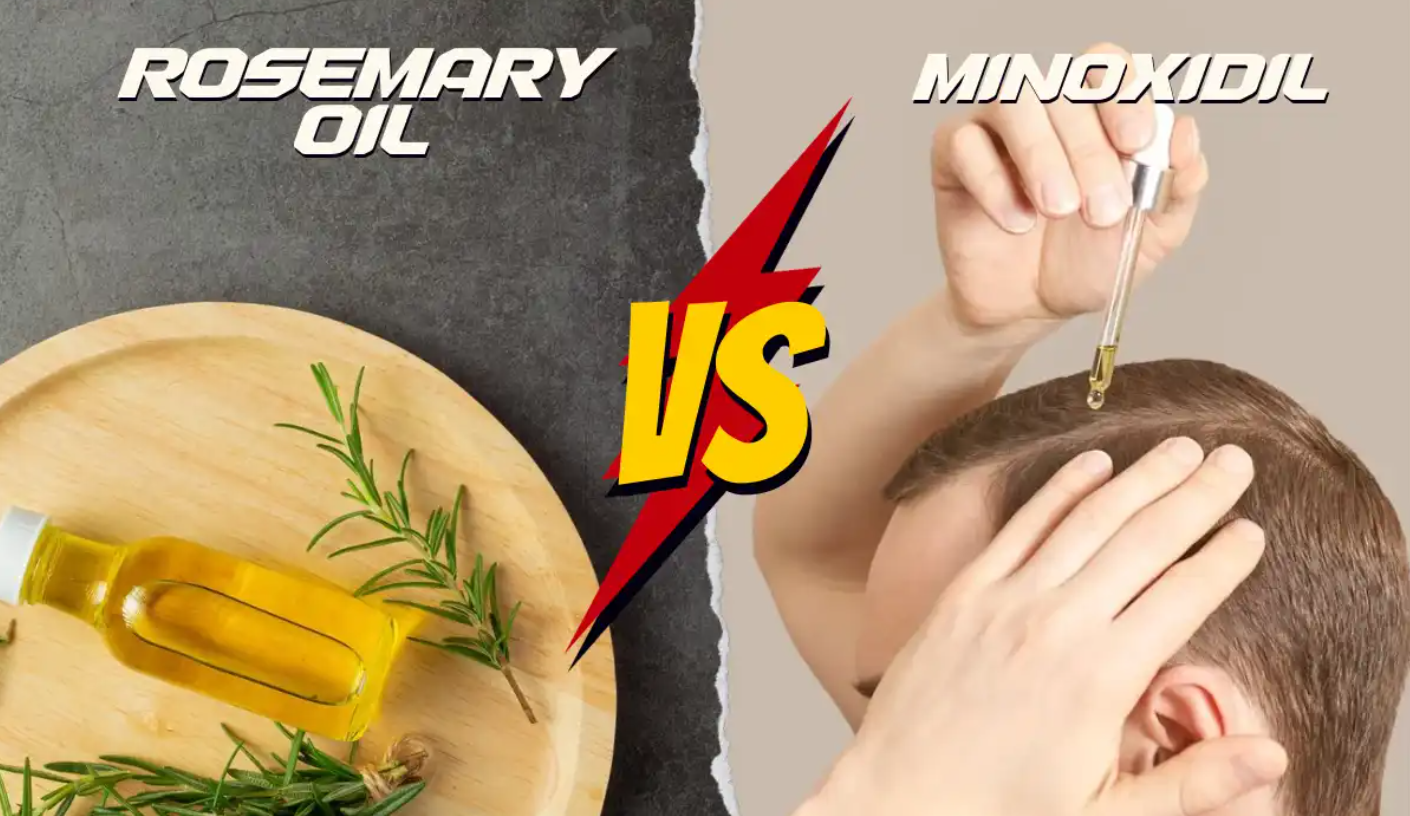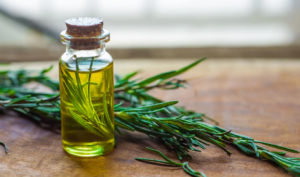
Rosemary Oil vs Minoxidil
Rosemary Oil vs Minoxidil
Exploring the Comparison Between Rosemary Oil and Minoxidil for Hair Growth
Hair loss affects millions of individuals worldwide, leading to a booming market for hair restoration solutions. Amongst popular options are Rosemary Oil and Minoxidil, both proven to encourage hair growth. But what sets them apart? We delve deeper into their mechanisms, pros, cons, and practical applications to understand better which approach suits specific needs.
Understanding Rosemary Oil
Derived from the Rosmarinus officinalis plant, Rosemary Oil possesses multiple therapeutic qualities, including promoting hair growth. Its primary mode of action involves increasing blood circulation to the scalp, fostering nutrient supply and oxygen uptake essential for robust follicular function.
Pros of Using Rosemary Oil
- Naturally derived: As a herbal essence, Rosemary Oil aligns with those preferring botanical alternatives to chemical interventions.
- Gentler formula: Unlike prescription medications, it carries fewer risks of severe adverse effects.
- Multi-purpose solution: Beyond hair growth promotion, it serves as a versatile essential oil addressing several concerns, e.g., stress relief and pain management.
- Affordability: Compared to commercial hair growth products, Rosemary Oil tends to cost less, especially considering long-term usage.
Cons of Using Rosemary Oil
- Lack of standardization: Variables such as extraction methods and purity levels affect efficacy, requiring careful selection.
- Gradual results: Visible change demands consistent usage over extended periods.
- Potential sensitivities: Some individuals may develop contact dermatitis upon exposure to certain essential oils.
Minoxidil: An FDA Approved Solution
Initially developed as a medication for hypertension, researchers discovered Minoxidil’s unexpected ability to spur hair growth. Consequently, it emerged as a widely accepted pharmaceutical option for treating pattern baldness and alopecia areata.
Pros of Using Minoxidil
- Clinically tested & approved: Numerous trials prove Minoxidil’s efficacy in reversing hair loss.
- Quick absorption: Topical formulations facilitate rapid penetration through the skin layers targeting hair roots directly.
- Targeted therapy: Specifically designed to combat hair loss, yielding potentially quicker outcomes than generalized remedies.
Cons of Using Minoxidil
- Artificial composition: Containing synthetic components, some users express reservations regarding long term impacts.
- Common side effects: Reported reactions encompass burning sensation, redness, itching, and inflammation around treated regions.
- Continuous commitment: Once initiated, continuous daily administration becomes mandatory, otherwise, gains reverse rapidly.
Comparing Mechanisms
Both Rosemary Oil and Minoxidil share similar objectives invigorating dormant follicles and augmenting hair shaft diameter. Yet, they differ significantly in methodology.
Rosemary Oil operates organically, heightening microcirculation within the scalp via massage techniques or specialized tools. Improved vascularity equates to greater accessibility of life promoting resources required for optimum follicular metabolism. Thus, nurturing environment propels dormant strands back into growth phase.
On the contrary, Minoxidil acts primarily as a vasodilator, expanding peripheral vessels. This widened conduit enables more extensive infusions of blood constituents carrying nourishment requisite for hair generation. Simultaneously, it extends the anagen (growth) cycle duration, culminating in denser tresses.
Selecting the Ideal Option
Choosing between Rosemary Oil and Minoxidil depends largely on personal preferences and circumstances. Individuals favoring holistic approaches often lean towards natural essences like Rosemary Oil. Meanwhile, others appreciate the precision offered by scientific breakthroughs exemplified by Minoxidil.
Factors influencing the decision comprise tolerability, affordability, convenience, desired outcome speed, and risk tolerance. Ultimately, informed consultation with healthcare professionals ensures tailored recommendations reflecting unique profiles and goals.
Combining Rosemary Oil with Minoxidil
Some proponents advocate blending Rosemary Oil with Minoxidil to leverage synergistic benefits. Preliminary findings indicate enhanced performance versus standalone therapies, although rigorous clinical assessments are pending.
Employing this hybrid strategy necessitates cautious execution since combining elements could intensify reactivity. Therefore, initial patch testing verifies compatibility and identifies possible contraindications ahead of broader implementation.
rosemary Oil vs Minoxidil Which is Better?
Delving into the comparison between Rosemary Oil and Minoxidil reveals varying modes of operation supporting each technique. Each comes with their own set of strengths and weaknesses that individuals ought to evaluate based on their personal values and aspirations. Despite the route taken, persistent effort forms the foundation for achieving desirable results concerning luxurious hair growth. Seeking counsel from qualified healthcare professionals proves crucial when venturing into previously unexplored realms of beauty rituals.

Benefits of Using Rosemary Oil for Hair Growth
Rosemary Oil vs Minoxidil Study
A 2015 study explored whether rosemary oil could treat androgenetic alopecia (AGA), comparing its effectiveness to minoxidil 2%. In this double-blind, randomized, placebo-controlled investigation, 100 AGA sufferers received either rosemary oil or minoxidil 2% for six months. Results indicated that rosemary oil worked similarly to minoxidil 2% in promoting hair growth, with no notable side effects detected throughout the trial period. Interestingly, participants favored rosemary oil over minoxidil due to better treatment adherence.
This study led researchers to propose that rosemary oil presents itself as a feasible alternative to minoxidil for handling AGA because of its equivalent efficiency coupled with superior tolerability. Further comprehensive examinations are encouraged to solidify these conclusions and ascertain the long-term safety and efficacy of utilizing rosemary oil in advancing hair growth.
Overall, the 2015 research supports the notion that rosemary oil holds equal potential as minoxidil in stimulating hair growth amongst AGA patients. Due to minoxidil’s potential side effects, rosemary oil emerges as a possibly more appealing choice for those pursuing natural alternatives to traditional hair growth treatments. However, additional exploration is advised to affirm these findings and pinpoint the ideal dose and frequency of rosemary oil application for maximized benefits.
- Panahi Y, Taghizadeh M, Marzony ET, Sahebkar A. Rosemary oil vs minoxidil 2% for the treatment of androgenetic alopecia: a randomized comparative trial. Skinmed. 13(1):15–21. [PubMed] [Google Scholar]. https://pubmed.ncbi.nlm.nih.gov/25842469
- Rafael de Oliveira J, et al. (2017). Biological activities of Rosmarinus officinalis L. (rosemary) extract as analyzed in microorganisms and cells. https://www.ncbi.nlm.nih.gov/pmc/articles/PMC5685262
- Rahbardar M G, et al. (2020). Therapeutic effects of rosemary (Rosmarinus officinalis L.) and its active constituents on nervous system disorders. https://doi.org/10.3390/nu12020385

How to Use Rosemary Oil for Hair Growth
- Excessive Hair Growth
- Hair Spa Treatment
- Hair Transplant
- PRP Hair Treatment
- Scalp Scaling
- Scalp Treatment
- Trichology Treatment
FAQs
- Is Rosemary Oil safer than Minoxidil?
Answer: Generally speaking, yes. Since Rosemary Oil stems naturally from plants, it poses lower inherent hazards compared to synthesized chemicals found in Minoxidil. However, sensitivity reactions can occur with either substance, mandating judicious application. - Can I mix Rosemary Oil with my current Minoxidil treatment?
Answer: Possibly. Blending requires discernment due to potential interactions affecting stability and response patterns. Medical experts recommend preliminary patch tests to gauge suitability before broad adoption. - Which works faster – Rosemary Oil or Minoxidil?
Answer: Typically, Minoxidil demonstrates prompt effectuation attributable to direct vasodilation mechanism. Nonetheless, Rosemary Oil’s gradual enhancement of circulatory dynamics ultimately yields analogous advancements, though timelines fluctuate among users. - Are there any long term consequences linked to prolonged utilization of either Rosemary Oil or Minoxidil?
Answer: Limited literature exists detailing lasting ramifications of chronic employments. Short-term satisfactory experiences usually prevail across diverse demographics. Still, ongoing monitoring remains critical amid evolving knowledge landscapes. - Does insurance cover hair loss treatments involving Rosemary Oil or Minoxidil?
Answer: Unlikely. Insurance policies rarely extend coverage beyond medically prescribed protocols. Exception scenarios exist depending on policy clauses and diagnosed conditions, thus warranting case specific investigations.
